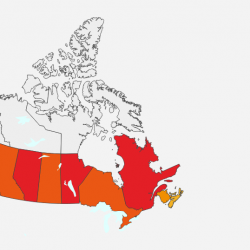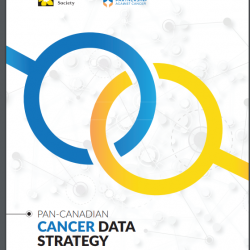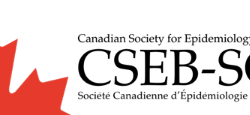Assessing Skin Cancer Risk Factors, Sun Safety Behaviors and Melanoma Concern in Atlantic Canada: A Comprehensive Survey Study
Authors: François Lagacé, Bibi Nuzha Noorah, Santina Conte, Lorena Alexandra Mija, Jasmine Chang, Leila Cattelan, Jonathan LeBeau, Joël Claveau, Irina Turchin, Wayne Gulliver, Robert Gniadecki, Elena Netchiporouk, Wilson H. Miller Jr., Thomas G. Salopek, Elham Rahme, Sandra Peláez, and Ivan V. Litvinov. Journal: Cancers Abstract Background: The incidence of cutaneous melanoma (CM) is increasing at an alarming rate in Canada and elsewhere around the world. Significant regional differences in CM incidence have been identified in Atlantic provinces. The goal of this study is to compare ultraviolet exposure, sun protective behaviours, level of worry and baseline CM knowledge in provinces with a high versus low incidence of CM as well, as between various demographic groups. Methods: A cross-sectional survey study was conducted in Atlantic provinces between July 2020 and August 2022. All participants aged ≥ 16 years with a completed survey were eligible. Survey responses were summarized using frequency counts, percentages, and means. Two-sided Z-tests for equality of proportions and logistic regression models were used to compare the survey results between geographic and demographic groups. Results: In total, 7861 participants were included (28.0% men; mean age 61.3 years; response rate 28%). Our results (gender- and age-adjusted odds ratio, 95% confidence interval) show that high-incidence provinces for CM (Prince Edward Island and Nova Scotia) had significantly more sunburns (OR 2.00, 1.72–2.31), total sun exposure (OR 2.05, 1.68–2.50), recreational sun exposure (OR 1.95, 1.61–2.35) and tans (OR 1.77, 1.53–2.05) than individuals in low-incidence provinces (Newfoundland and Labrador). However, individuals in high-incidence provinces displayed more protective behaviors: there were less tanning bed users (OR 0.82, 0.71–0.95), they checked their skin more frequently for new moles (OR 1.26, 1.06–1.51) and practiced more sun protection overall. Additional analyses are presented based on education, income, sexual orientation and gender. Discussion: These findings suggest that future efforts aimed at reducing the CM burden in Atlantic Canada should be tailored for target geographic and/or demographic groups. https://doi.org/10.3390/cancers15153753 Last Updated on July 28, 2023






